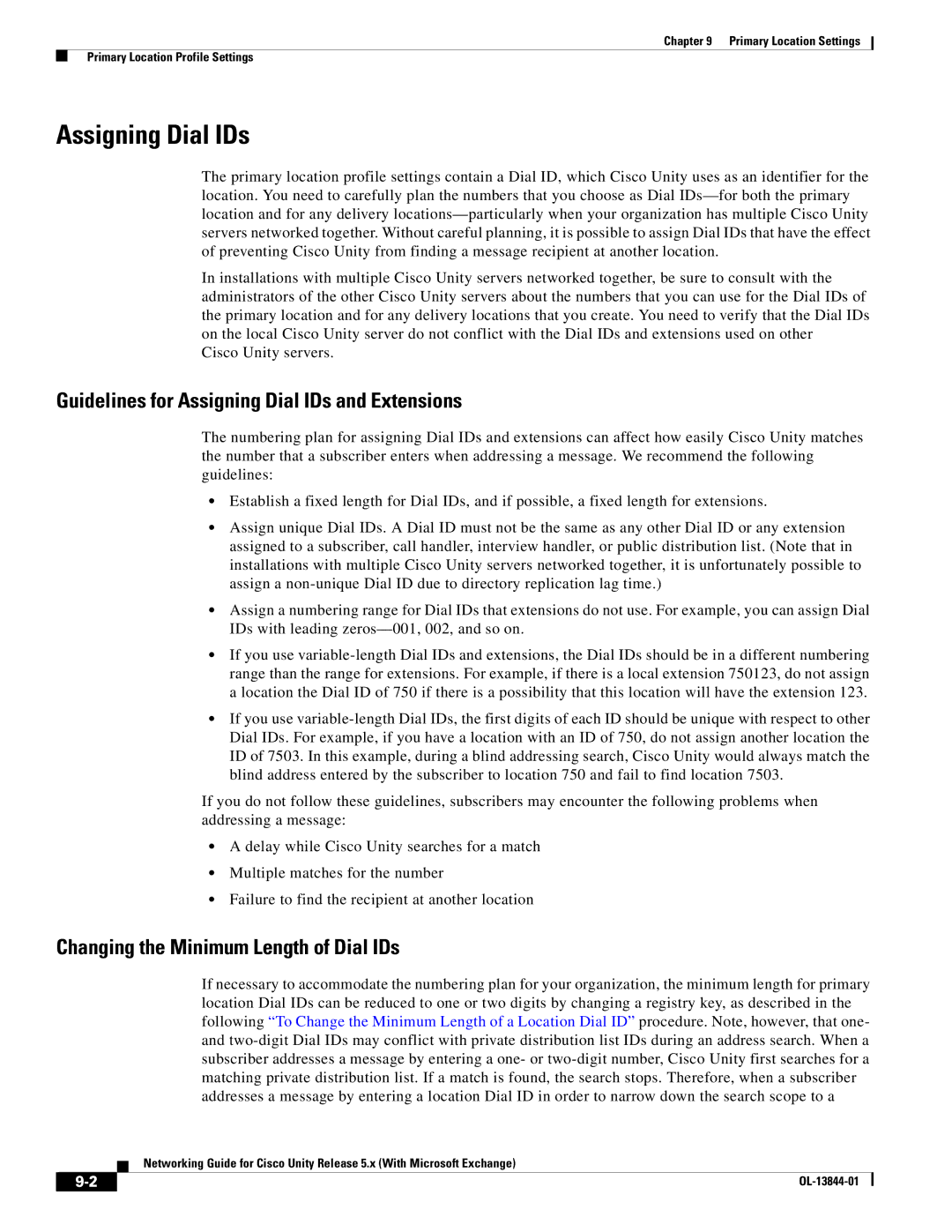
Chapter 9 Primary Location Settings
Primary Location Profile Settings
Assigning Dial IDs
The primary location profile settings contain a Dial ID, which Cisco Unity uses as an identifier for the location. You need to carefully plan the numbers that you choose as Dial
In installations with multiple Cisco Unity servers networked together, be sure to consult with the administrators of the other Cisco Unity servers about the numbers that you can use for the Dial IDs of the primary location and for any delivery locations that you create. You need to verify that the Dial IDs on the local Cisco Unity server do not conflict with the Dial IDs and extensions used on other
Cisco Unity servers.
Guidelines for Assigning Dial IDs and Extensions
The numbering plan for assigning Dial IDs and extensions can affect how easily Cisco Unity matches the number that a subscriber enters when addressing a message. We recommend the following guidelines:
•Establish a fixed length for Dial IDs, and if possible, a fixed length for extensions.
•Assign unique Dial IDs. A Dial ID must not be the same as any other Dial ID or any extension assigned to a subscriber, call handler, interview handler, or public distribution list. (Note that in installations with multiple Cisco Unity servers networked together, it is unfortunately possible to assign a
•Assign a numbering range for Dial IDs that extensions do not use. For example, you can assign Dial IDs with leading
•If you use
•If you use
If you do not follow these guidelines, subscribers may encounter the following problems when addressing a message:
•A delay while Cisco Unity searches for a match
•Multiple matches for the number
•Failure to find the recipient at another location
Changing the Minimum Length of Dial IDs
If necessary to accommodate the numbering plan for your organization, the minimum length for primary location Dial IDs can be reduced to one or two digits by changing a registry key, as described in the following “To Change the Minimum Length of a Location Dial ID” procedure. Note, however, that one- and
Networking Guide for Cisco Unity Release 5.x (With Microsoft Exchange)
|
| |
|
